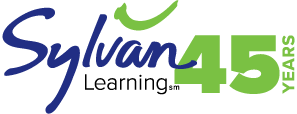Preparing for 4th grade
By 4th grade, academics have kicked into high gear and subjects become more sophisticated. Fourth graders are more responsible and beginning to think critically. Here’s what your 4th grader is already learning in class along with the skills he or she should acquire by the end of this school year.
4th grade reading
At this point in the year, your fourth grader should be reading longer chapter books and more nonfiction books and texts. As digital natives, the Internet is almost second nature to kids and your child will be using it to access and research information.
By the end of the year, your fourth grader will be able to:
-
-
- Use more advanced reading comprehension strategies to understand text, including making inferences, determining the main idea and identifying key details.
- Synthesize information from two texts.
- Support analytical thinking with specific examples from the text.
- Summarize information.
- Interpret information from charts, images, videos, timelines and diagrams.
- Compare and contrast information read.
- Proficiently read at grade level four in both fiction and nonfiction texts.
(This is DRA level 20-24 at the beginning of fourth grade and 40-50 at the end and Lexile 740-875L .)
-
- Learn new vocabulary words using context clues.
4th grade writing
Fourth-grade writing should tie in with 4th-grade reading. Now that your 4th grader is reading more nonfiction, he or she will also be writing informational reports in complete paragraphs.
By the end of the year, your 4th grader will be able to:
- Know the basic parts of speech.
- Write a structured paragraph with a topic sentence, supporting details and a closing sentence.
- Use punctuation such as commas, apostrophes and quotation marks appropriately.
- Understand synonyms, antonyms and homophones.
- Identify prefixes and suffixes.
- Use research to write an informational report.
- Write description and persuasive texts.
4th grade math
Fourth-grade math builds on the information learned in previous grades and adds more complexity, especially with regard to fractions and decimals. Your 4th grader is learning to:
- Interpret information in a graph.
- Use data to make a graph.
- Compare large numbers.
- Understand negative numbers.
- Multiply three- and four-digit numbers including numbers with zero.
- Find common multiples.
- Understand prime and composite numbers.
- Divide larger numbers.
- Divide when there is a zero in the quotient.
- Estimate quotients and mentally divide.
- Understand improper fractions and mixed numbers.
- Reduce fractions.
- Add and subtract fractions.
- Read and write decimals.
- Convert decimals to fractions and fractions to decimals.
- Round decimals.
- Be able to place decimals on a number line.
- Accurately measure length, weight, capacity and temperature in both customary and metric units.
- Add and subtract time and money.
- Understand lines and rays, angles, lines, polygons and the area of rectangle.
- Solve multi-step word problems.
4th grade social studies
Social studies curriculum in 4th grade includes history and geography. Fourth graders will usually study:
- World geography including maps, hemispheres, coordinates, mountains and scale.
- History, including your home state, the American Revolution, the Constitution, the Bill of Rights and the early presidents.
4th grade science
Fourth-grade science curriculum depends on your school district but generally, 4th graders study electricity, geology, such as earthquakes and erosion, and the systems of the human body.
It’s amazing to watch 4th graders develop their reasoning skills. Most kids really grow from literal thinkers into abstract thinkers throughout this year. It’s always been one of our favorite years to teach!
Fourth grade is such an exciting time
Now you know what 4th graders are supposed to know, it’s time to ask yourself: Are your child’s skills on par with his or her grade level? How did your child really do with the disruption to school last year? With a Sylvan Assessment, we can find out exactly where your child stands in comparison with his or her grade level, and create a personalized plan to help further his or her knowledge base! For more information, visit your local Sylvan Learning center today!
Now’s the time to take action if:
- You’ve noticed any academic issues that have been simmering for a while
- Your child is just getting by (but isn’t really excelling), or …
- You want to give you child an edge for next year
Sylvan offers a variety of services — from personalized tutoring, to homework coaching and skill building, to advancement programs — to help your family achieve your goals.
